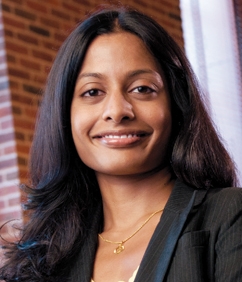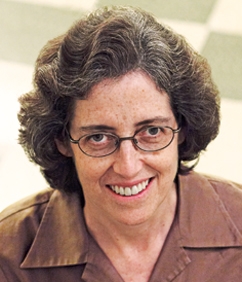The Immigrant Rights Clinic trains tomorrow’s social justice lawyers
The Immigrant Rights Clinic, now in its 16th year, has earned a reputation as a training ground for top lawyers who advocate for the local and national immigrant rights communities. The clinic’s model, in which students represent individual clients while also working on long-term projects on behalf of organizations, teaches students to think as social justice lawyers. Students handle their own cases, from writing briefs and devising strategies to arguing before judges. They also receive help from fellow clinic students as well as guidance by clinic co-directors Professors Alina Das ’05 and Nancy Morawetz ’81, experts in matters of detention, deportation, and judicial review. Since 2014-15 clinic alumnus Ruben Loyo ’09, an adjunct professor, has also taught in the clinic.
A look at a few cases from the past year’s docket shows how the IRC is honing students’ legal skills.
In a case before the US Court of Appeals for the Second Circuit, Rebecca Hufstader ’15 and Luis Angel Reyes Salvaza ’15 argued on behalf of their client, a legal permanent resident who was detained by Immigration and Customs Enforcement (ICE) because he had, years earlier, been convicted of a crime and sentenced to probation. The question centered on when the government may exercise discretion to release someone who is not a danger or a flight risk, and the team of student-lawyers made several strong arguments in court. Hufstader and Salvaza pointed out, for example, that the statute contemplates someone going into ICE custody straight from a jail sentence, not four years after the conviction.
“Our students identify legal arguments that other people don’t identify,” says Morawetz. “They develop a quality of argument that often becomes the model for people around the country.”
In two separate habeas cases in the US District Court for the Southern District of New York, Andrew Lubarksy ’16 and Eva Young ’16 successfully advocated for the release of their clients, who were permanent residents.
“We believe in the ability of our students to take on challenging and complex cases from start to finish, and as a result we see them doing extraordinary things for their clients and for the cause as a whole,” says Das. “Their passion and creativity shape the law in amazing ways." This spring Das was cited in the opinion for Mellouli v. Lynch, in which the US Supreme Court reiterated Das’s argument that deportation consequences must be based on a straightforward legal analysis of a person’s conviction.
“Even though Alina is one of the top experts in the country on the issue we were working on, she made sure we handled every aspect of the case while providing detailed feedback,” says Hufstader. “Her support and supervision gave me the confidence to believe I could write an appellate brief and argue before the Second Circuit.”
Juan Caballero ’16 and Alex Feuerman ’16 spent months working on the case of a woman whose application for an immigrant visa had languished for a decade, during which time she lived in the US and had two children. Once Citizenship and Immigration Services finally contacted her at an outdated address for interviews and received no response, however, she was deemed deportable. Caballero and Feuerman won cancellation of her removal proceedings before an immigration court judge and secured permission for her to work while she awaited permanent residency.
Caballero, who came to NYU Law because of the IRC, says that Morawetz taught him to look beyond the doctrinal approach to recognize the importance of the human factors in each case and of leveraging the positive characteristics of clients in framing arguments.
What sustains the IRC, Morawetz notes, is the knowledge that the clinic can make a phenomenal difference in people’s lives. “We save people’s lives in the clinic. We stop people from being deported. We get people the status they deserve. We get people liberty when they are being denied liberty,” she says. “When we don’t succeed it is very difficult; the stakes are very high in this work. But it is incredibly rewarding to do the work, and it is also incredibly intellectually challenging.”
Posted August 17, 2015



